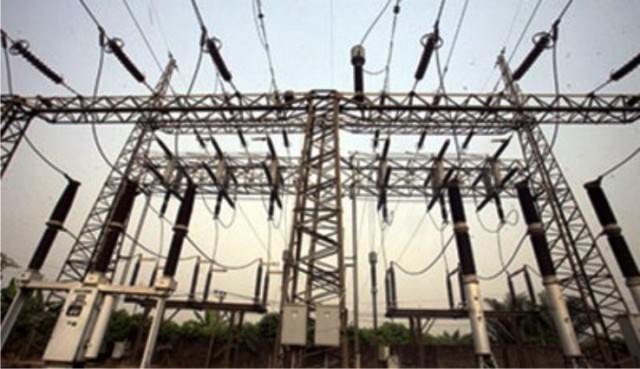Oil & Energy
Power Sector Loses N19.15bn In 10 Days

The nation’s power sector lost an estimated N19.15bn in 10 days due to constraints from insufficient gas supply, distribution and transmission infrastructure.
The losses were recorded in the 10 days to February 14, 2020, according to data from the Advisory Power Team in the Office of the Vice President.
The sector lost an estimated N1.96bn on February 14; N2.01bn on February 13; N2bn on February 12; N1.95bn on February 11; N2.15bn on February 10, and N1.95bn on February 9.
About N1.89bn was lost on February 8; N1.92bn on February 7; N1.77bn on February 6, and N1.55bn on February 5.
The average energy sent out on Friday, February 14, was 4,108 megawatts-hour/hour, up by 111.51 MW from the previous day.
The APT said 3,314 MW was not generated due to unavailability of gas; 188.6MW was not generated due to unavailability of transmission infrastructure, while 579.2MW was not generated due to high frequency resulting from unavailability of distribution infrastructure.
The average energy sent out last Thursday was 3,997 MWh/h, while 4,181.4MW was not generated due to gas shortage, unavailability of transmission and distribution infrastructure as well as water management.
The average energy sent out last Wednesday was 4,033 MWh/h while 4,171.4MW could not be generated by the power stations.
Last Tuesday, the average energy sent out was 3,994 MWh/h while available power generation capacity of 4,064,2M was idle.
Last Monday, the average energy sent out was 3,908 MWh/h while 4,476.4MW could not be generated by the power stations.
The average energy sent out was 3,929 MWh/h on February 9; 3,872 MWh/h on February 8; 4,040 MWh/h on February 7; 4,092 MWh/h on February 6; and 4,145 MWh/h on February 5.
The system operator put the nation’s installed generation capacity at 12,910.40MW; available capacity at 7,652.60MW; transmission wheeling capacity at 8,100MW; and the peak generation ever attained at 5,375MW.
The nation generates the bulk of its electricity from gas-fired power plants, while output from hydropower plants makes up about 30 per cent of the total.
The distribution and generation companies carved out of the defunct Power Holding Company of Nigeria were handed over to private investors on November 1, 2013, following the privatisation of the power sector.
More than six years after the privatisation, the investors who took over the power firms that emerged after the unbundling of the PHCN are still grappling with the old problems in the sector.
The sector is plagued with problems of gas supply shortages, limited distribution networks, limited transmission line capacity, huge metering gap, electricity theft, and high technical and commercial losses, among others.
Oil & Energy
Electricity Boost: Abia Launches Waste-To-Energy Project

Oil & Energy
NUPRC Pledges Transparency In 2025 Oil Pre – Bid Round

Oil & Energy
Dangote Refinery Affirms 75m Litres PMS, 25m Litres Diesel Daily Supply

-

 Business5 hours ago
Business5 hours agoNCDMB, Jake Riley Empower 250 Youths On Vocational Skills
-

 Oil & Energy6 hours ago
Oil & Energy6 hours agoNNPCL Unveils Gas Master Plan 2026 …….Targets 10bcf/day production
-

 Politics4 hours ago
Politics4 hours agoPFN Rejects Call For INEC Chairman’s Removal Over Genocide Comments
-

 News7 hours ago
News7 hours agoGovs Move To Prioritise Sugar For Industrial Growth
-

 Sports6 hours ago
Sports6 hours agoEkitike Stars As Liverpool Upstage Newcastle
-

 Niger Delta4 hours ago
Niger Delta4 hours agoPDP Declares Edo Airline’s Plan As Misplaced Priority
-

 Environment5 hours ago
Environment5 hours agoNigeria, UAE to waive tariffs on some products
-

 News7 hours ago
News7 hours agoLand ownership disputes are civil matters, not police cases – FCID

